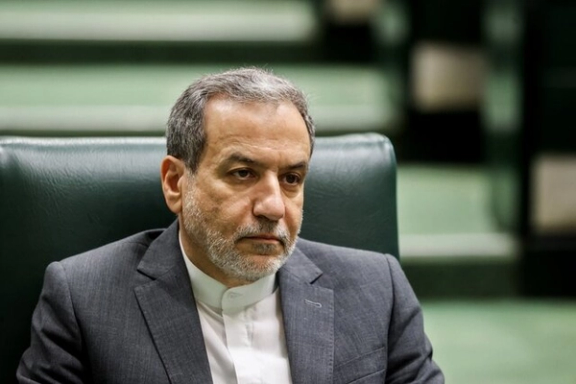The British, French, and German foreign ministers all talked to Iran’s new foreign minister, Abbas Araghchi, on Friday, calling on him to help prevent the escalation of tensions with Israel.
French Foreign Minister Stéphane Séjourné "expressed his deep concern about the rise in tensions in the region," calling on his counterpart to do "everything possible to avoid a regional conflagration, which would be of no interest to anyone, including Iran," the French Foreign Ministry said.
Séjourné called on Iran to urge the destabilizing actors it supports in the region to exercise maximum restraint, saying he passed messages to all the actors concerned during his recent trip to the region to call for a de-escalation, in particular between Israel and Lebanon.
Araghchi is known to be "open" to the west and has expressed his desire to “rebuild” relations with European powers. In his conversations with top European diplomats, however, he reiterated the position set by Iran’s Supreme Leader Ali Khamenei that responding to Israel’s killing of Hamas leader Ismail Haniyeh in Tehran is an “absolute right.”
Haniyeh was killed in his residence on July 31, having attended the inauguration ceremony of Iran’s president, Pezeshkian. Iranian officials blamed Israel for the targeting and Khamenei vowed to “avenge his blood.”
Intense diplomatic efforts ensued, led by the Biden administration, warning Iranian officials of the dire “consequences” if a large-scale attack against Israel were to materialize.
The attack was said to be “imminent” for more than a week, but then the intelligence assessment in Israel and the US downgraded the threat, saying that Iran seemed to have decided to “delay” – but not call off – its retaliation.
“The US believes Iran is still prepared to do something if they choose to," White House national security spokesman John Kirby told reporters Friday, referring to Iran's potential attack against Israel. “The US continues to monitor Iran, and is not taking anything for granted,” he added.
Iranian officials have said many times that the assassination of Haniyeh in Tehran “cannot and will not go unpunished.” The diplomatic efforts of the US, EU, and regional leaders, seems to have succeeded in cooling down the crisis.
A key factor in Iran’s reevaluation seems to be the ongoing talks towards a ceasefire agreement in Gaza, which Iranian officials say is a priority.
The Biden administration has been hard at work to get Hamas and Israel to sign a ceasefire agreement that would ensure the release of remaining hostages in Gaza. Some US officials have suggested that a Gaza ceasefire might avert Iran’s retaliation. Iranian officials have rejected the notion, while admitting that they don’t want their response to jeopardize the negotiations.
“The timing, conditions, and manner of Iran’s response will be meticulously orchestrated to ensure that it occurs at a moment of maximum surprise,” Iran’s UN missions said Wednesday in a statement to the Wall Street Journal. “Perhaps when their eyes are fixed on the skies and their radar screens, they will be taken by surprise from the ground—or perhaps even by a combination of both,” the statement added.
An IRGC spokesman, Ali-Mohammad Naini, echoed the sentiment. “Time is on our side, and the waiting period for this response may be prolonged,” indicating a strategic shift from Tehran’s earlier threats of immediate and severe retaliation.







